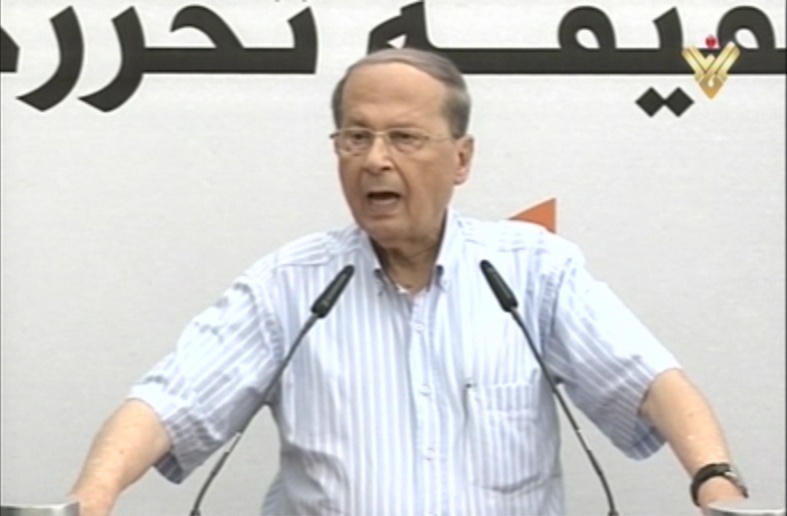The leader of the Free Patriotic Movement Michel Aoun urged partisans of his party to take part in street action to protest the decision to extend the terms of high-ranking military officer.
As he stressed that Hezbollah’s fight on the border with Syria defends all Lebanon, the leader of the Free Patriotic Movement Michel Aoun urged partisans of his party to take part in street action to protest the decision to extend the terms of high-ranking military officer.
“Today, I call on all FPM members to join us in the streets when the horn blows,” Aoun said after an extraordinary meeting of his Change and Reform Bloc in Rabieh.
 “If you want to defend your rights and live in a clean country, then you should join us,” he added, addressing the Lebanese as a whole.
“If you want to defend your rights and live in a clean country, then you should join us,” he added, addressing the Lebanese as a whole.
“Demonstrating is a right preserved by the Constitution,” he said. “Only the people give legitimacy, and not illegal decisions.”
Earlier this week, Defense Minister Samir Moqbel signed decrees earlier this week to extend the terms Army Commander Gen. Jean Qahwaji, Chief of Staff Maj. Gen. Walid Salman and Maj. Gen. Mohammad Kheir, the secretary-general of the Higher Defense Council, by one year each.
The step was taken despite vehement opposition from Aoun, who favored the appointment of new officers for the posts.
Meanwhile, the FPM leader warned Qahwaji against putting the military in confrontation with protesters, blaming him for “politicizing the Army to serve politicians.”
He also criticized the political class in Lebanon, accusing it of “corruption, theft and treason.”
“Those who are talking about corruption are the most corrupt,” he said. “If they have enough courage they should endorse a draft law presented by me on establishing a court specialized with financial crimes. Let us lift immunity off everyone.”
On the other hand, Aoun praised Hezbollah’s fight in Syria, stressing that the resistance is defending Lebanon, all Lebanon.
“Hezbollah is defending us because the Army failed to do so,” he said, adding: “had it not been for Hezbollah’s fight along the border with Syria, Lebanon’s fate would have been like Nineveh’s fate.”